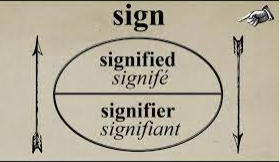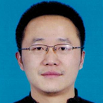Structural Linguistics
Saussure is a famous linguist in Switzerland. Young Grammar School is also called "Personal Psychologism Language School", and its research focuses on the personal factors of language. They understand language as the psychophysiological process of individual speech act and language structure as the direct expression of psychological temperament. Saussure opposed the viewpoint of the Young Grammar School, he focused on social factors, and thought that language was inherited by the collective who used the language according to tradition, and it was a symbolic system that determined individual speech acts, thus forming his later linguistic theory.

Saussure thinks that language is a system, that is, a transcendental structure, which is different from what people speak everyday. The characteristics of language are not composed of pronunciation and meaning itself, but a network formed by the relationship between pronunciation and meaning, which becomes a language system, that is, the structure of language. This language system is regarded as a symbol system.
Chomsky emphasized that linguistics studies language ability rather than language phenomenon. He divides language into deep structure and surface structure. He explained his structure and transformation method by putting forward the rules of short sentence structure and deduction mode. Phrase structure rules are rules for forming sentences. The first is a set of rules for rewriting phrase structure. For example, a sentence can be defined as consisting of noun phrases and verb phrases, while noun phrases are formed by combining articles with nouns, and verb phrases are formed by combining verbs with nouns. These combined elements are elements of structure, and language is formed by combining these elements. This method of sentence formation is also used to form passive sentences and interrogative sentences. This forms a way to illustrate the generative ability of language in a structuralist way. According to Chomsky's point of view, people have an innate ability to generate language (which he thinks is the function of the brain). Because of this ability, children can say sentences they have not heard after hearing a few sentences. Therefore, the decisive factor in language generation is the generation ability, not the language formed through experience. He put forward that grammar is the deep structure of language, while discourse formed according to language's generative ability and grammar is the surface structure of language.
The language structure and the difference between deep structure and surface structure were put forward by Chomsky in 1950s and 1960s, which had great influence at that time and was considered as "initiating a linguistic revolution". By the 1980s, he had turned to think that the concept of brain could be used to explain language phenomena. He did not adopted the rules of language structure any longer , and thought it was "extremely traditional" and still belonged to the traditional grammar. Deep structure and surface structure have been debated endlessly because of their different interpretations in linguistics, and he has indicated that they will no longer be used in his works in 1970s. However, Chomsky's two methodological principles have been widely used by other structuralist thinkers and become an important part of structuralism.
Source from: https://zhuanlan.zhihu.com/p/214215417









_%E5%89%AF%E6%9C%AC1.png)

